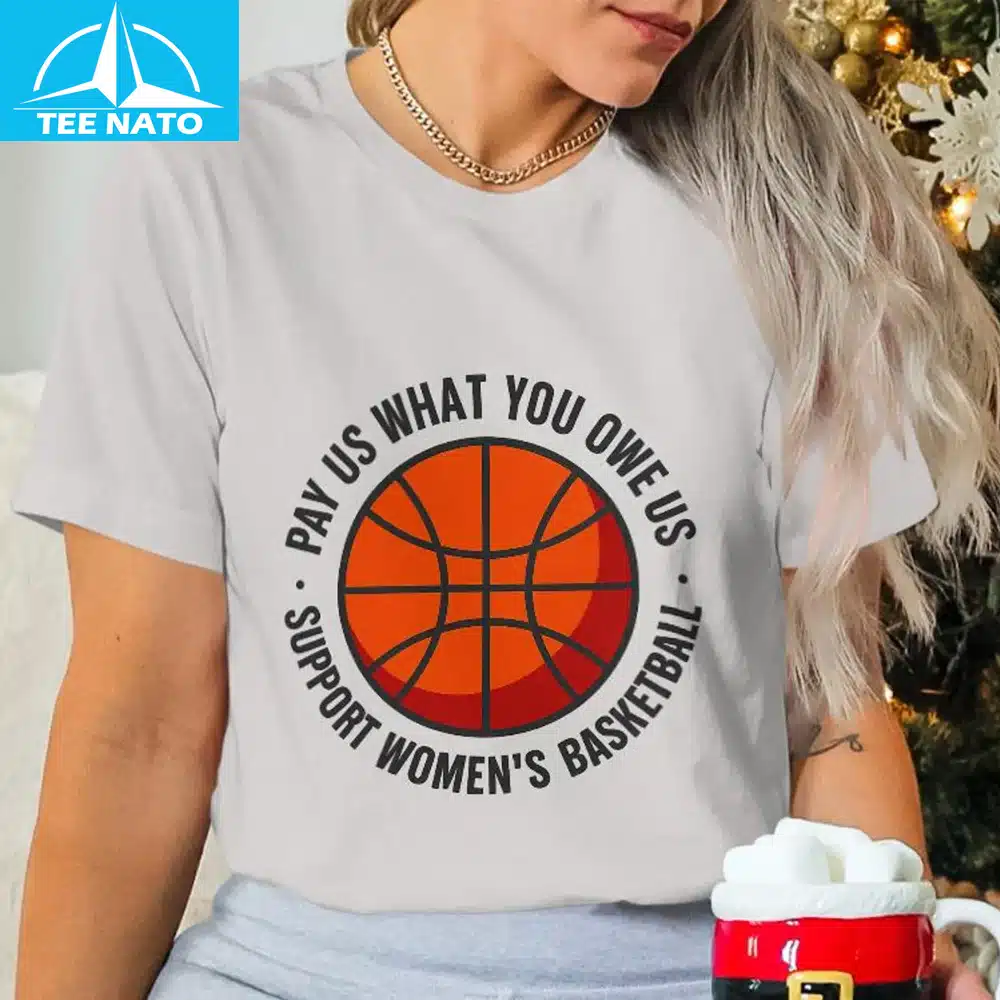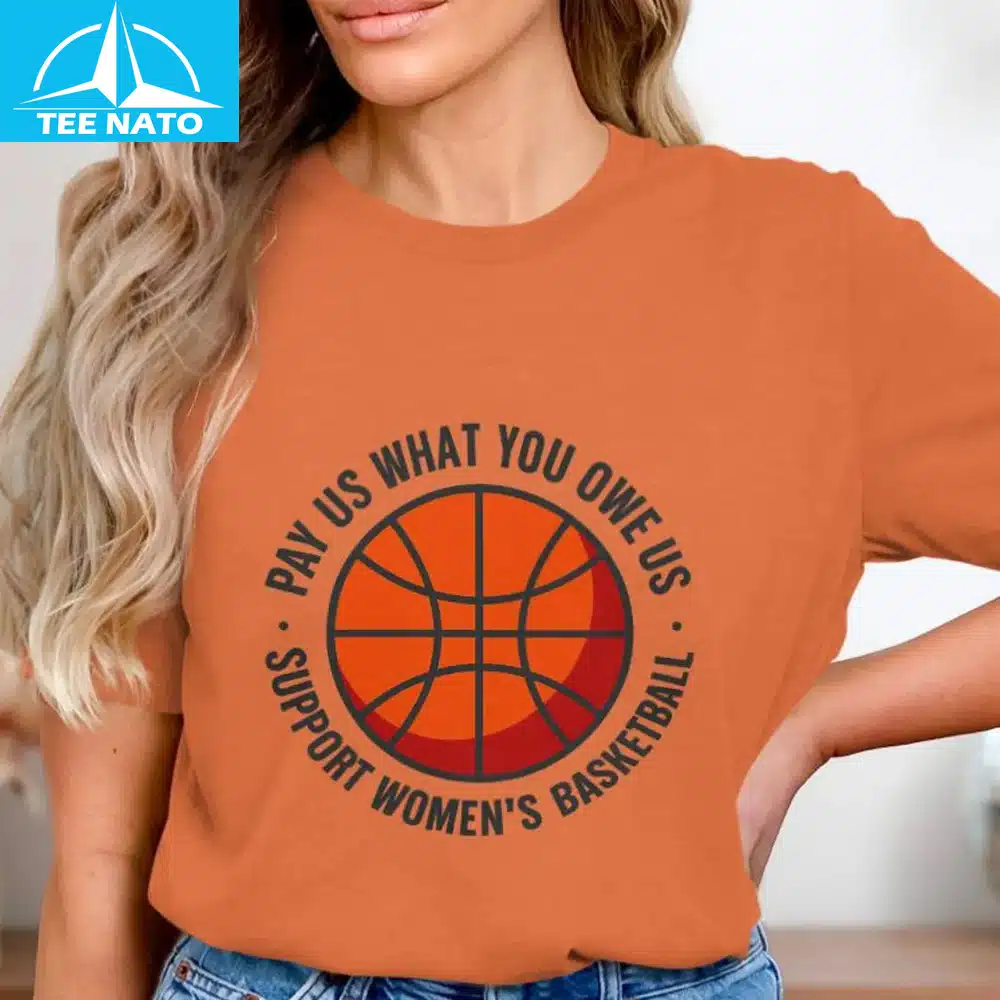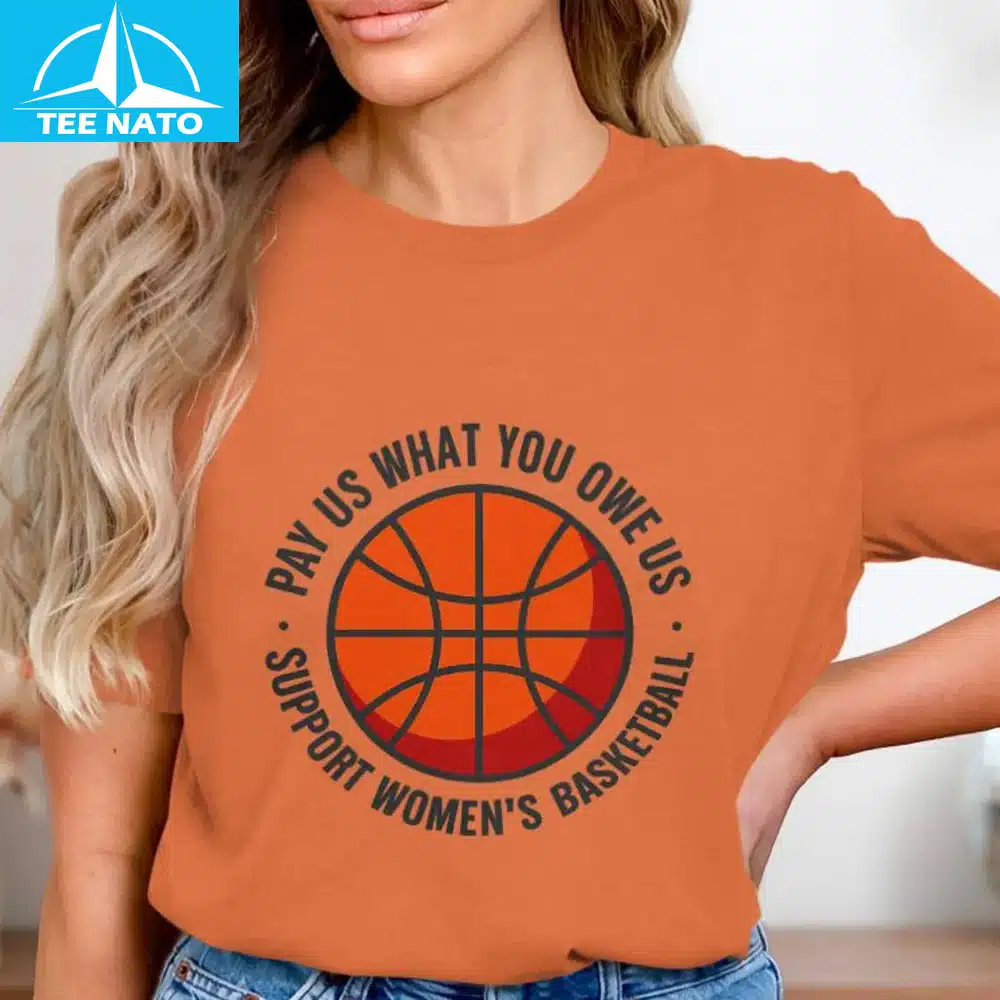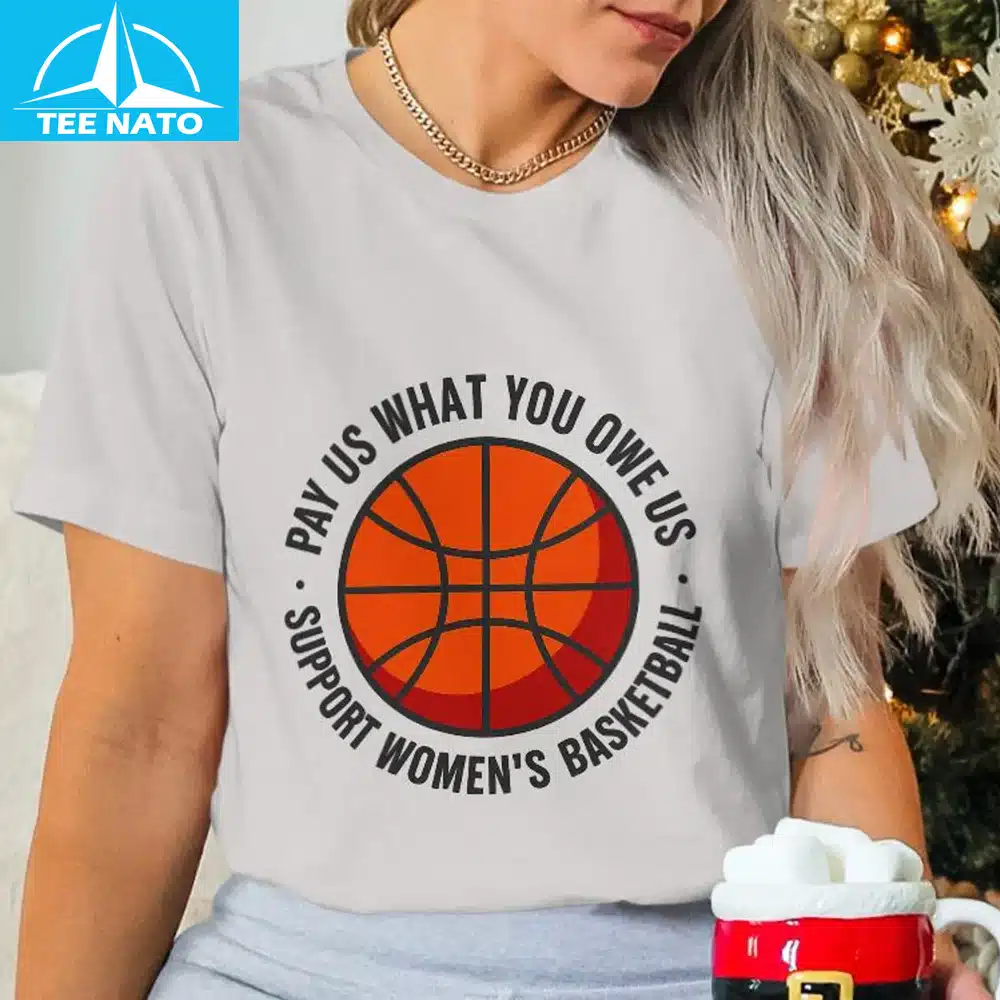The Women’s Basketball Pay Us What You Owe Us Shirt: An Emblem of the Equality Movement
The Women’s Basketball Pay Us What You Owe Us Shirt has emerged as a significant emblem in the discourse surrounding gender equality in sports. Its direct slogan calls for equitable compensation and recognition for female athletes, reflecting a broader, ongoing movement. Whether seen at sporting events, rallies, or in daily life, the shirt serves to initiate conversations about this important issue.
The campaign for equal pay within women’s basketball is a long-standing issue that is currently experiencing a significant surge in public awareness and support. Athletes in the WNBA and collegiate sports are increasingly speaking out about the disparities they face in salaries, resources, and media exposure. The Women’s Basketball Pay Us What You Owe Us Shirt has become a symbol of this movement, encapsulating the call for change.
![]()
Historically, women’s basketball has operated in the shadow of the men’s game. Despite significant viewership and revenue generation, female athletes typically earn substantially less than their NBA counterparts. The shirt’s message references decades of this systemic inequality, highlighting the argument that talent should not be devalued due to gender.
Prominent athletes such as Sue Bird and Breanna Stewart have become key figures in the pay equity conversation, using their public profiles to advocate for fairness. The Women’s Basketball Pay Us What You Owe Us Shirt functions as a unifying symbol, giving supporters a visible means of aligning with the movement. By wearing the shirt, fans become participants in the advocacy effort.

The financial disparity between the leagues is notable. The average WNBA salary is approximately $130,000, whereas average NBA salaries are in the millions. Top-tier WNBA players often earn less than NBA players with limited playing time. This economic imbalance points to broader societal issues that the shirt’s message aims to challenge.
This shirt serves as a functional tool for advocacy beyond game attendance. For players, fans, and allies, here are several ways to utilize its message.
It can be paired with jeans for a casual look or worn under a blazer for a more polished statement. Wearing it at games, rallies, or featuring it on social media helps to increase the visibility of the message, making the issue more difficult to overlook.
Sharing a photo with the shirt and an associated hashtag is an effective tactic.
Tagging leagues, sponsors, and public figures can broaden the message’s reach. Social media effectively turns the shirt into a digital advocacy tool, creating public pressure on relevant institutions.
Consider hosting a fundraiser or a panel discussion where the shirts are featured or distributed. Collaborating with local sports organizations can help create a more unified and impactful effort. Collective action is a key step in turning symbolic gestures into tangible change.
The push for equity in women’s basketball has implications that extend beyond player salaries; it concerns respect, opportunity, and the sport’s legacy.

Fair pay models create a more viable career path for young athletes. When aspiring female players see professional women earning what they are worth, it can positively influence their own career expectations. The message of the Women’s Basketball Pay Us What You Owe Us Shirt is therefore relevant to future generations.
Developments in sports can often influence societal norms and practices. Achieving pay equity in this arena could inspire similar reforms in other sectors. From entertainment to corporate environments, the underlying principles of equal pay for equal work are applicable. This shirt, therefore, represents a broader call for equality.
The Women’s Basketball Pay Us What You Owe Us Shirt is more than an article of clothing; it’s a symbol of the call for justice in sports and other fields. By wearing it, sharing it, and supporting its message, individuals can challenge existing norms and advocate for the equality that women in basketball have earned. It is important to continue the dialogue until equitable standards are achieved. `
POSTER SEO_SIBATOOL